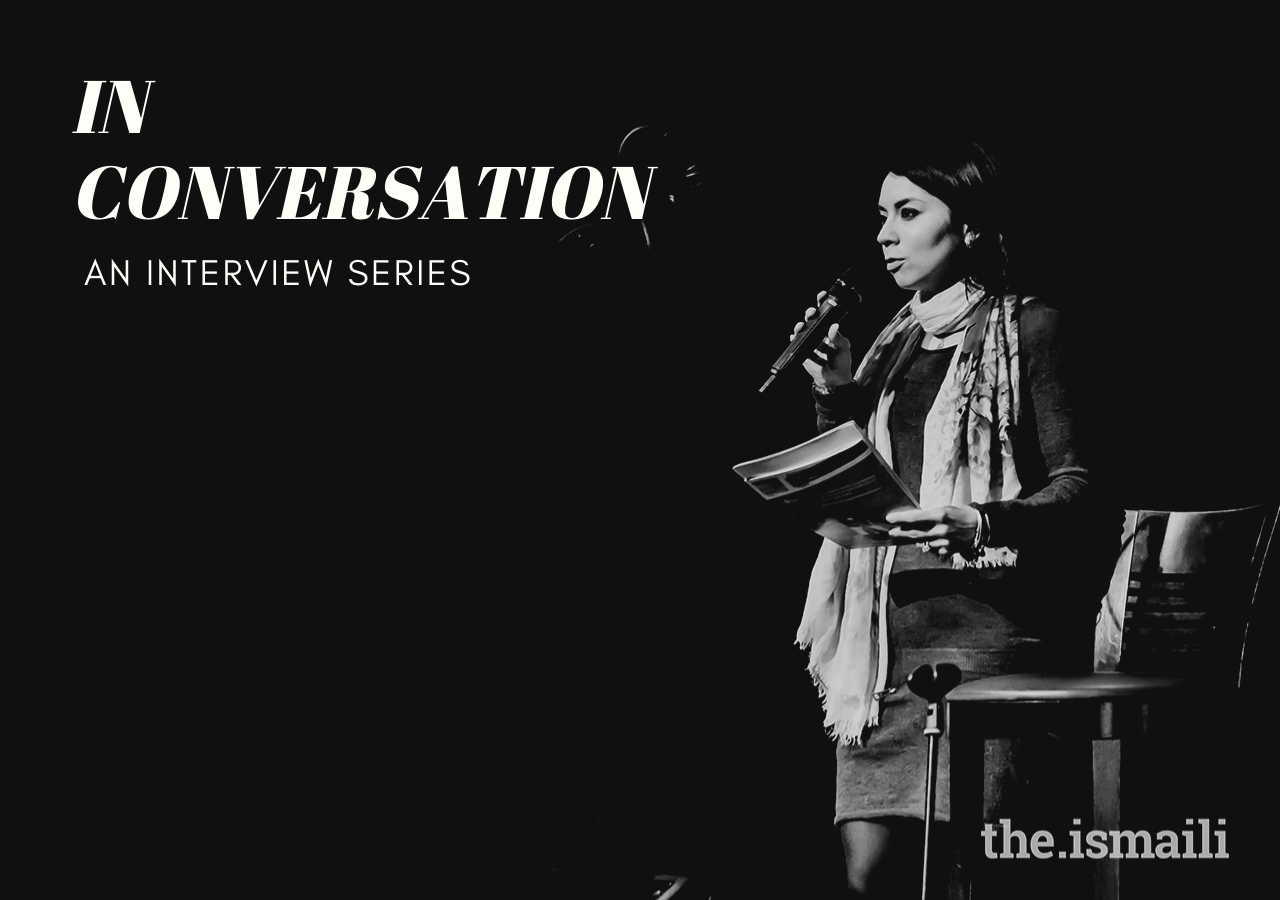Why is music important to the Ismaili Imamat and AKDN?
The very prominent role of music in the work of the AKDN reflects an underlying belief that quality of life depends not only on physical and material well-being, but also on the cultural and spiritual dimensions of humanity. Music expresses a key link between spirit and culture.
How can art forms such as music contribute to progress and development?
Music can strengthen a sense of community by imbuing its members with a collective sense of their own shared history and identity. This can be inspiring and empowering. Musicians and artists who are able to earn a livelihood from their work also contribute economically to their community. Music and art, however, are unique in the context of development work because their value is not merely instrumental but, to a large extent, intrinsic. You don’t need a microcredit scheme or immunization programme for its own sake, yet the project of preserving and further developing a nation’s cultural assets and strengthening access—and freedom of access—to diverse forms of cultural expression is valuable for its own sake. Moreover, in many of the countries where the Music Initiative works, performing arts is one of the few sectors offering employment opportunities in an otherwise grim economic environment, thanks to the fact that live music accompanies all important life cycle events. In Cairo, for example, AKMI students have been able to earn a good living in low-income neighbourhoods. Music can also empower individuals and communities in situations of conflict and distress. AKMI collaborates with an NGO called Action for Hope that works with Syrian refugees and provides arts and music education in the refugee camps and settlements. Action for Hope describes its mission as follows: “We provide people with access to culture and tools for creative expression to enrich their lives, increase the cultural capital of communities around them, and enable their contribution to our shared humanity.”
How was the idea of the Aga Khan Music Awards conceived?
The idea of establishing a music award was first broached by Prince Amyn Aga Khan back in 2001, when the Aga Khan Music Initiative was launched. Through its performance, education, documentation, and new works commissioning programmes, the Music Initiative was able to have a strong impact on the countries where we worked while also building our “brand” and creating a network of partners and collaborators around the world. The Music Awards offer a way to expand the impact of our work by offering monetary recognition and career development support to musicians from anywhere in the world who are contributing to the preservation and ongoing development of Muslim musical heritage. We began discussing the conceptual and logistical framework of the Awards platform five years ago, and I’m deeply grateful for the unwavering support received from His Highness and Prince Amyn, and from the worldwide Jamat.
The Aga Khan Music Awards team is excited to be working on this inaugural Music Awards ceremony and we hope that it will both celebrate creative excellence and be worthy of the vision of the Co-Chairmen.
What can we expect to see and hear at the inaugural awards?
The Aga Khan Music Awards at the Calouste Gulbenkian Foundation will bring to Portugal a constellation of the world’s leading musical talents from the Muslim world for an event of global importance in the arts. The musicians who will perform at the Awards events are without exception extraordinary, and extremely diverse. On 29 March, the Gulbenkian Orchestra, led by maestro Pedro Neves, will perform new works by Master Musicians of the Aga Khan Music Initiative from Tajikistan, Syria, and Afghanistan. On 30 March, the 14 finalists for the Award in Performance will each perform for a live audience in three sessions spread out through the day, with the winner announced that evening; and on 31 March, a gala concert and prize-giving ceremony will feature performances by award-winners. Together, the two concerts offer a panoramic view of music whose origins are in the Muslim world, while speaking to the values of pluralism and cosmopolitanism so central to the work of the Aga Khan Development Network.
How does AKMI promote pluralism in regions where the diversity of expression has been constrained over time?
It starts with education. Education has always been at the centre of the Music Initiative’s activities, and it will continue to play a central role in the work of the Music Awards. Learning to respond to art and music that is not one’s own is a first step toward building cultural pluralism and cosmopolitanism, and AKMI’s education programmes have offered many opportunities for the best musical talents to engage with one another across cultures. AKMI’s recent multimedia production Qyrq Qyz (Forty Girls)—a retelling of an ancient Central Asian epic about female empowerement—is a great example. The production features a cast of seven enormously talented young female musicians, plus two accomplished artists. The seven younger musicians are Kazakh, Kyrgyz, Karakalpak, and Uzbek—which is to say, all from kindred Turkic cultures with similar languages and musical traditions. When we first started rehearsing, however, these young artists were too shy to try communicating across the differences of language and culture. But through working together on Qyrq Qyz, they learned about one another’s musical traditions, found common linguistic ground, and expanded their worldview. These young women are future musical leaders of Central Asia, and AKMI is proud to have played a formative role in their musical education.
What is the role of AKMI in bridging traditional and so-called ‘modern’ forms of music?
Supporting artists who are creating these bridges has been a core part of our work since the very beginning of AKMI. Practically all the musicians in AKMI’s artist roster have been bridge-builders. This is particularly true of Master Musicians of the Aga Khan Music Initiative, a collective that features AKMI’s leading collaborators—venerated performers and composer-arrangers who appear on the world’s most prestigious stages while also serving as teachers, mentors and curators who enrich the Music Initiative’s interregional network of education programmes.
This “bridging” work will also become part of the Music Awards. Each in their own way, the winners and finalists are striving to communicate with contemporary listeners. That means searching for a way to express traditional musical forms and styles in an artistic language appealing to today’s listeners while at the same time helping these listeners appreciate and understand the languages of older musical traditions. There’s a cliché that “music is a universal language,” but if you think about it, this is not really the case. Musical languages are extremely diverse, and appreciating and understanding what any particular musical language has to tell us means making an effort to learn and interpret it.
What does the future hold for the Aga Khan Music Awards?
I’d like to underscore that going forward, the Music Awards platform will support not only the triannual selection of prize-winners but an ongoing professional development programme for selected musicians who play an important role in the tranmission of musical heritage within their community. The Awards secretariat will be working with particular dilligence to identify and cultivate the exceptional musical talent that exists within the Ismaili community, and to collaborate with these musicians to present to a broad public musical traditions that have been carefully cultivated in the Jamat over the centuries.
--
Malika Fairouz Nishanova is a cultural development specialist with a lifelong love of performing arts, music and dance that embraces the many styles and traditions of the lands where she has lived, worked, and travelled. Born in Sri Lanka to Uzbek parents, she grew up in Amman, Jordan and was educated at Moscow State University, from which she received a B.A. with distinction in History and Asian & African Studies, and at the London School of Economics and Political Science, from which she received a postgraduate degree with distinction in International Relations and World Politics. Ms Nishanova began her career at the Federal Assembly of the Russian Federation and continued at the United Nations Economic Commission for Europe. She joined the Aga Khan Development Network in 2000 and has served as Director of the Aga Khan Music Initiative at the Geneva-based Aga Khan Trust for Culture since 2005. In this capacity, she has overseen the creation of the Aga Khan Music Awards’ structure and the organisation of its inaugural ceremony. She also serves as executive producer of the Aga Khan Music Initiative’s concerts, recordings, films, and public events; Ms Nishanova is on the current International Jury of the European Festivals Association.








